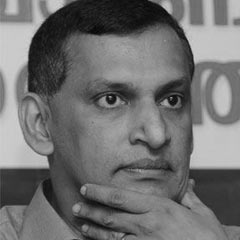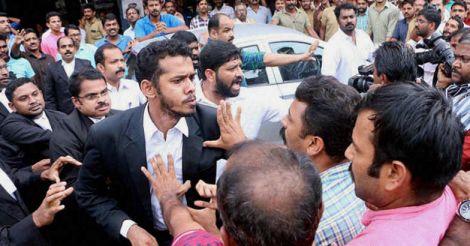Years ago, a chief reporter of a national newspaper had the opportunity to regularly report proceedings of the Supreme Court. It is said that judges in the court used to be extra careful when the reporter was around. They used to avoid irrelevant comments and were very careful to display maturity when giving out their verdicts and comments. This is one standing example of judges displaying humility; not before the media, but before the people. That is perhaps why Jeremy Bentham wrote that disclosure of court proceedings is the soul of justice and that judges who issue orders are also being judged by the people.
The Supreme Court has, in many instances, such as the ‘Sreya Singhal case’ and the ‘Khushboo case’, said that tolerance towards contradicting opinions or arguments is the essence of democracy.
However, the recent development in the Kerala High Court where the media was barred from offices close to judges’ chambers, is an affront on democratic principles in the state. One fails to understand on which law, the move is based. This could have disastrous effects on the collection, dissemination and clarity of news collected from courts.
One is prompted to wonder as to who would benefit by gagging the media in a state where even adverse public comments from courts have led to the resignations of ministers. Recently, it was the media which was at least partly able to stymie the rise of parallel power centres in the in garb of legal advisors.
One is also at loss to understand as to what these new restrictions, in addition to security measures such as CCTVs within the High Court premises, would serve. Whatever happens in the court is transparent and the judges, lawyers and the media cannot indulge in anything under the table.
If there were deviations in the operations of the media, they have to be rectified. However, a committee that is designated to rectify the mistakes and ensure freedom of the press, should not be made of people who have no knowledge about the scope of modern journalism and the advanced technologies that it employs.
Laws concerning Contempt of court (1971), Press and registration of books (1867), Copyright (1957) Cable TV Network (1995), Defamation (IPC 499 and 500) etc are in force in our land and they apply to the media. Norms that do not fall under the ambit of these laws cannot be implemented by a set of judges. The comments by Late Justice V.R. Krishna Iyer in the ‘Malgoakar Case’ about excessive use of force by courts against the media, assumes much relevance now.
Courts are, in one respect, political power centers. When issues that concern the rights of the citizen are issued from the court, the people have the right to know them. The media has the responsibility of disseminating such information to the people honestly and transparently. This perhaps could be the reason why Supreme Court order in the ‘Subramaniam Swamy case’, in which defamation laws were seconded, the freedom of the press was highlighted.
In Europe, there is a system called 'European Network of Council for the Judiciary,' which takes up the responsibility of disseminating court procedures transparently and honestly to the people. In Spain, there are media offices where experienced journalists are employed to work with courts. In Sweden, there are provisions for journalists to directly interact with judges. In the Netherlands, there is a special division called Press Judges, which interact with the media. In Britain and Brazil, court proceedings are telecast live. These are all examples of the democratization of court procedures.
For these reasons, moves at the Kerala High Court to curb freedom of the press are anti democratic. People can afford to become insignificant, however the Kerala High Court cannot follow suit.

























 Visuals of the scuffle at the Kerala High Court in Kochi
Visuals of the scuffle at the Kerala High Court in Kochi